職人の手染めからデジタル捺染まで ろっこやのきものや帯に使われている技術をご紹介いたします
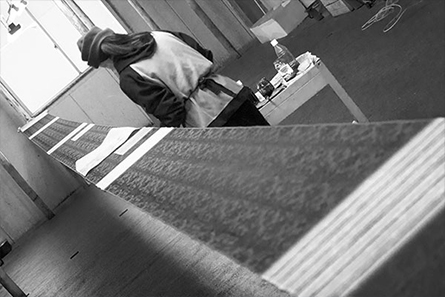
引染(ひきそめ) HIKISOME
引染とは伸子でピンと張った生地に染料液を刷毛で均一に、またボカシ表現で染色する技法を言います
一反13メートルの反物を引っ張って均一に染めるのは大変高度な技術が必要となります
ろっこやの引染商品は全て京都の引染職人によるものです
Hikisome is a traditional method of dyeing, in which colours are applied by hand using a soft paintbrush. To create a kimono, this technique requires thirteen meters of fabric to be stretched taut while colours are painstakingly applied by hand.
All of Roccoya’s hikisome items are hand-made by skilled artisans.
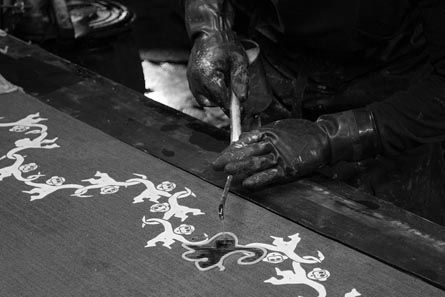
注染(ちゅうせん) CHUSEN
注染とは糊で防染し重ね上げた生地の上から染料を注ぎ、模様部分を染め上げる伝統的な型染め技法のひとつ
裏表が無く染め上がるのが特徴で、他の染色方法では味わう事の出来ない独特の風合い、絶妙なタッチや立体感を醸し出します。表裏両面から染色するため、表も裏も同じ柄が同じ色合いで出るのも注染の特徴です
中でも、関東地方で染められるものは 東京本染(とうきょうほんぞめ)と呼ばれます
ろっこやでは、オリジナルデザインの注染ゆかたを製作しています
To create a chusen design, a stencil is used to apply glue to the fabric. Dye is then poured onto exposed portions of the fabric and allowed to soak through several layers. The resulting variations in texture and colour make each piece truly unique. Unlike other techniques, drawing the dye through the fabric also results in an equally vivid image on both sides of the cloth.
The patterns on Roccoya’s line of original yukata are produced by chusen artisans.
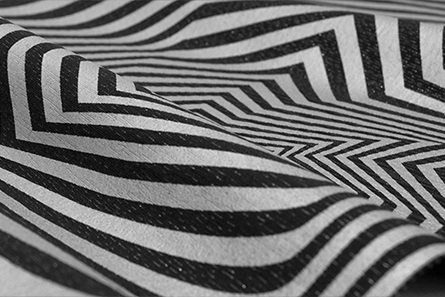
手捺染(てなっせん) HAND PRINTING
一色に対して型を一枚使うため色数の分だけ型が必要になる
捺染台に白生地を貼り付け、生地の上に型枠を乗せヘラを使って色糊で染める技法
シャープで繊細な図案の表現が可能で力強い美しい発色が魅力
ろっこやでは手捺染で帯や帯揚げを製作しています
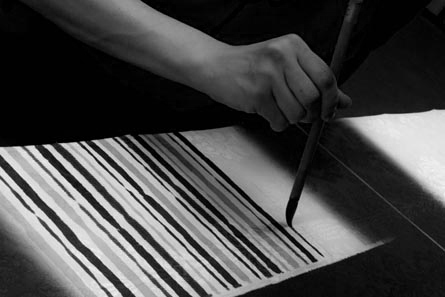
手描き染め(てがきそめ) HAND DRAWN
布や反物などへ、筆や刷毛を用いてフリーハンドで模様を描く手法
色彩を自由に表現でき、手描き特有の素朴さ、または複雑微妙な変化を表すことができます
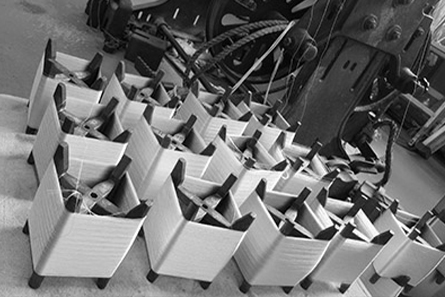
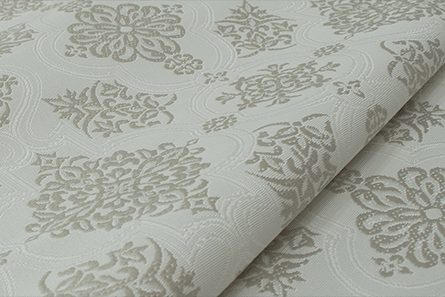
博多織(はかたおり) HAKATA ORI
福岡県博多市で特産とされる絹織物
細い経糸を多く用い、太い緯糸を強く打ち込み、主に経糸を浮かせて柄を織り出すのが博多織の特徴です
生地に厚みや張りがあって、博多帯を締める際には「キュッキュッ」と絹鳴りがあります
筑前博多織元さんご協力の元、ろっこやオリジナル紋入り博多帯を製作しています
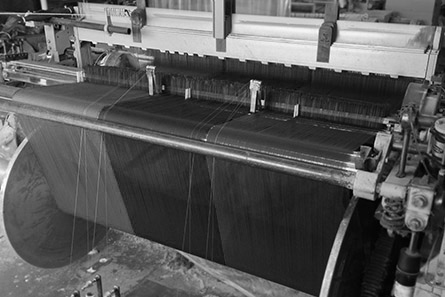
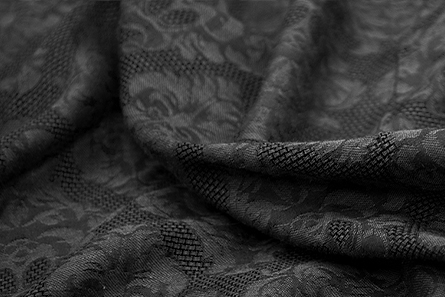
播州織(ばんしゅうおり) BANSHU ORI
播州織は兵庫県西脇市で特産とされる木綿織物
200年以上の歴史と伝統を誇る先染め織物で、豊かな色彩、光沢の良さ、ソフトな肌障りが特徴の高級木綿です
その品質の高さから海外有名ハイブランドの生地に採用されるなど世界のあらゆるファションシーンをリードし続けている播州織を着物の世界にも用いたいと、ろっこやプロデュースで播州織着尺がスタート
Banshu Ori is a centuries-old fabric making technique which begins with cotton in its raw state which is then spun, dyed, and woven in a manner that produces soft, richly coloured fabrics with a characteristic sheen. Some high-end textile makers in Europe and North America who wanted to replicate these qualities adopted the method of production during the 20th century, but the true heart of Banshu ori is still the town of Nishiwaki in Hyogo prefecture, where artisan families have been continuously producing the fabric for over 200 years. These artisans are now producing exclusive fabrics for Roccoya’s line of Banshu ori kimono.
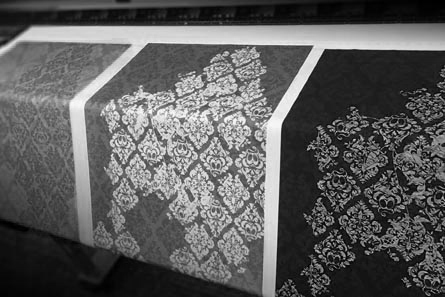
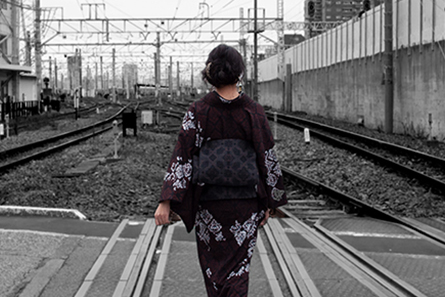
デジタル捺染(なっせん) DIGITAL PRINTING
生地に染料をダイレクトプリントする加工方法
ろっこやでは、自社のデジタル捺染機を導入
デザインから製作までを自社で執り行っています
